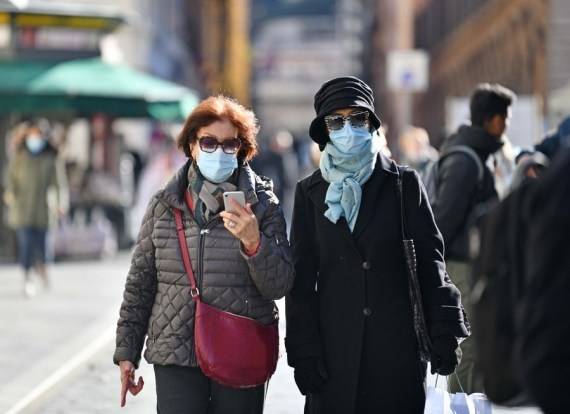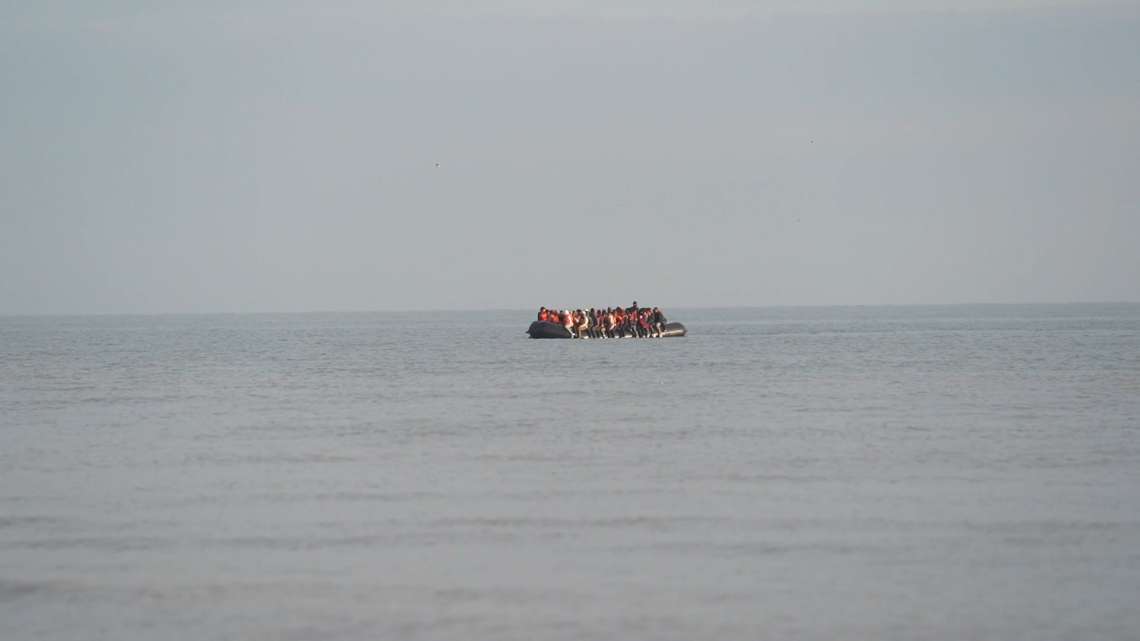The French government authorised the sale of antigenic tests in supermarkets until the end of January, and announced a monthly bonus of 100 euros ($113) to all intensive care medical staff….reports Asian Lite News
Just days before New Year’s eve, some European countries have been forced to take stricter measures to cope with surging Covid-19 cases of the Omicron variant.
In France, the daily number of Covid-19 cases reached 208,099 on Wednesday, breaking the record on Tuesday and hitting a new high since the outbreak of the pandemic in the country, Xinhua news agency reported.
“This means that 24 hours a day, every second, two French people are diagnosed positive,” the country’s Health Minister, Olivier Veran told the National Assembly while presenting a draft bill of the vaccination pass.
On Tuesday, the French government authorised the sale of antigenic tests in supermarkets until the end of January, and announced a monthly bonus of 100 euros ($113) to all intensive care medical staff.
The World Health Organization Director General, Tedros Adhanom Ghebreyesus also warned on Wednesday that he is “highly concerned that Omicron being more transmissible, circulating at the same time as Delta, is leading to a tsunami of cases.”

“This is and will continue to put immense pressure on exhausted health workers and health systems on the brink of collapse, and again disrupt lives and livelihoods,” he said.
This pressure is due not only to new Covid-19 patients requiring hospitalisation, but also to many health workers getting sick.
To ease pressure on medical staff in Spain, the health authorities decided on Wednesday to reduce the quarantine for people with asymptomatic Covid-19 infections from 10 days to seven days.
It is hoped the new measures could relieve some pressure on the health services, as the Health Ministry reported that over 5,000 health workers were infected with Covid-19 in the 14 days prior to December 23.
In addition to health services, the catering sector has also been badly hit by the pandemic.
“From the start of the Covid-19 pandemic, catering has always been one of the first sectors affected each time measures are announced,” said Christos Kapetanakis, owner of the Old Ithaki restaurant in central Athens.
The Greek government decided on Wednesday to implement further protection measures against Covid-19, as the number of new cases tripled in 48 hours across the country.
“The Omicron variant is now dominant. As our national health system is still under pressure from Delta, we must evaluate all the factors so that it can continue to cope,” said Greek Health Minister Thanos Plevris.

Faced with this spike, the government decided to bring forward a series of measures that were initially scheduled to enter into force on January 3, and added more restrictions.
In Cyprus, another country that relies heavily on tourism, new emergency measures aimed at slowing the runaway coronavirus pandemic are on their way, according to Health Minister Michalis Hadjipantelas.
As of December 30, everyone except those who have received a third dose of a vaccine will have to present a negative 24-hour test before entering entertainment venues, dance clubs and reception halls for weddings.
The Portuguese government has also extended its Covid-19 restrictions until January 5. To gain access to restaurants, parties and shows, people must present proof of vaccination or a negative Covid-19 test.
Portugal has registered 26,867 new Covid-19 cases in the past 24 hours, setting a new daily record since the beginning of the pandemic.
The Omicron variant has been a major factor in the worsening Covid-19 situation in Germany, with cases of the new variant increasing by nearly 26 per cent in one day, the Robert Koch Institute (RKI) for infectious diseases said on Wednesday.
“We must do everything we can to end the pandemic as quickly as possible,” said Svenja Schulze, Minister for Economic Cooperation and Development.
Around one year after Germany’s Covid-19 vaccination campaign began, 71 per cent of German citizens had been fully vaccinated as of Tuesday, according to official figures.
In neighbouring Belgium, the Omicron variant has accounted for 60 per cent of new infections, microbiologist Emmanuel Andre at Catholic University (KU) Leuven, said on Twitter on Monday.
However, 77 per cent of the Belgian population have been fully vaccinated since it started the vaccination campaign on December 28, 2020.
Denmark’s health officials have urged citizens to “see as few people as possible” during the holiday season, as the country reported a record daily number of 23,228 new Covid-19 cases.
In Britain, the health authorities reported a new record increase of 183,037 coronavirus cases in the last 24 hours. The latest data shows that more than 90 per cent of community Covid cases in England are now Omicron.
British Prime Minister Boris Johnson stressed the importance of booster jabs again on Wednesday, insisting this is the only way to enjoy the New Year “sensibly and cautiously”.














